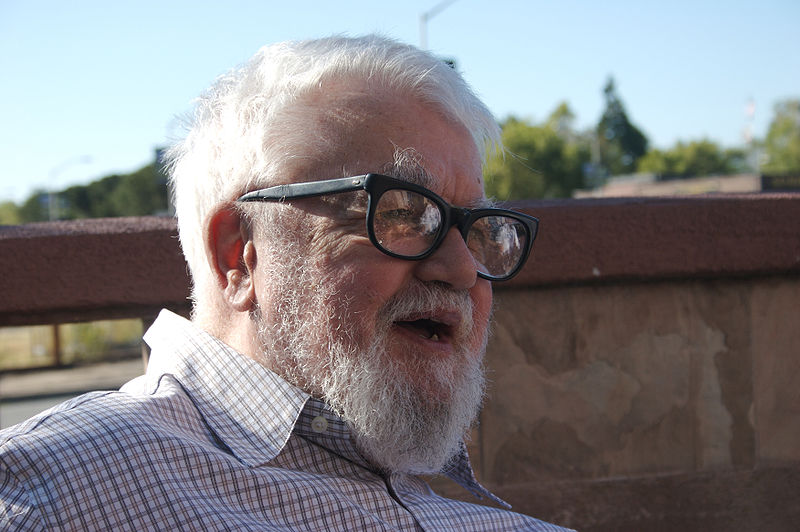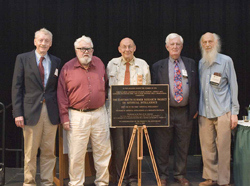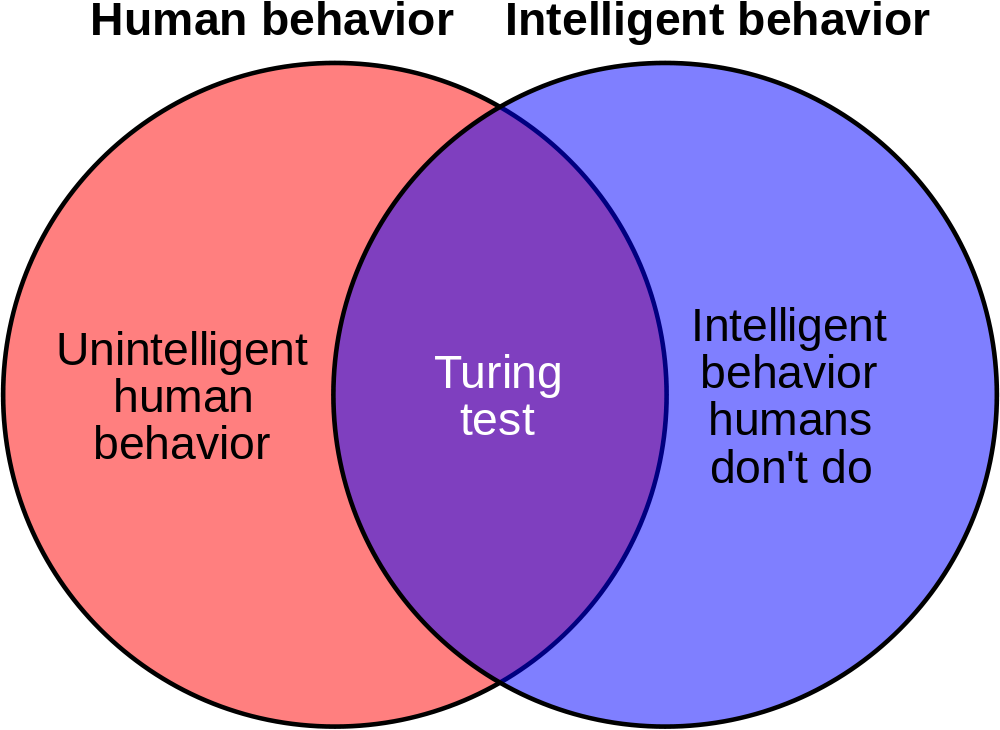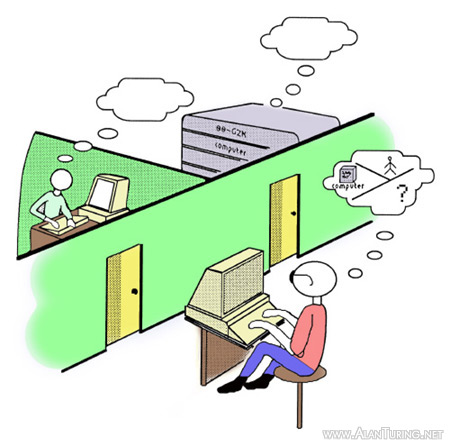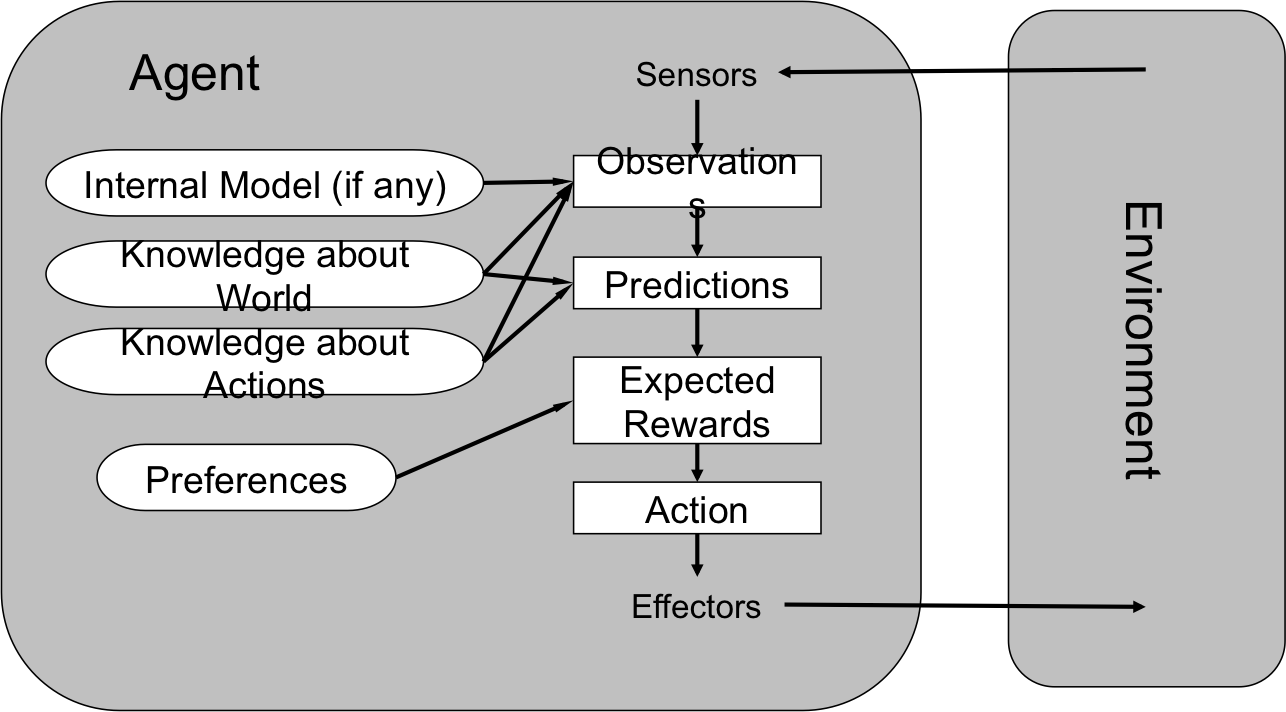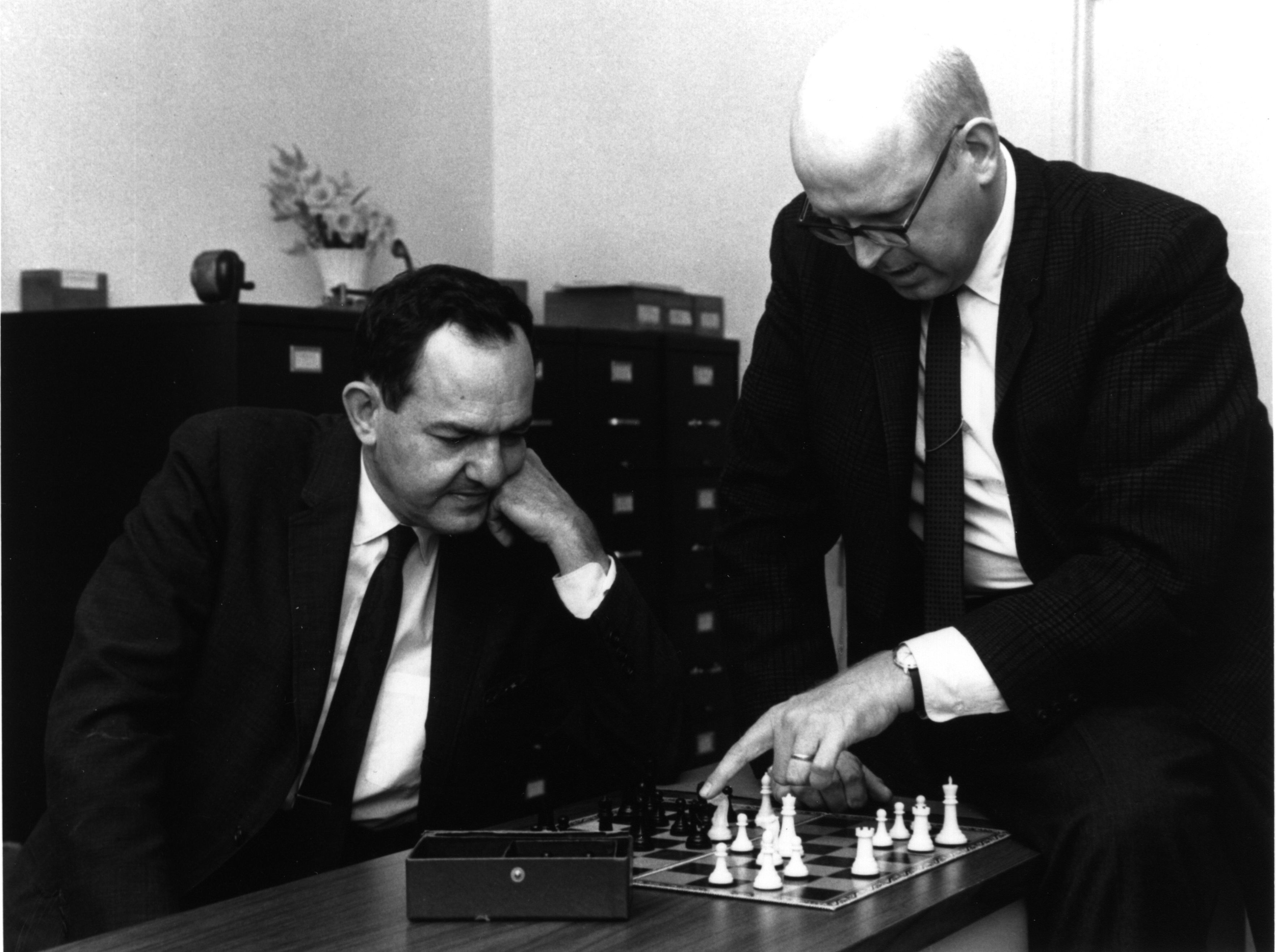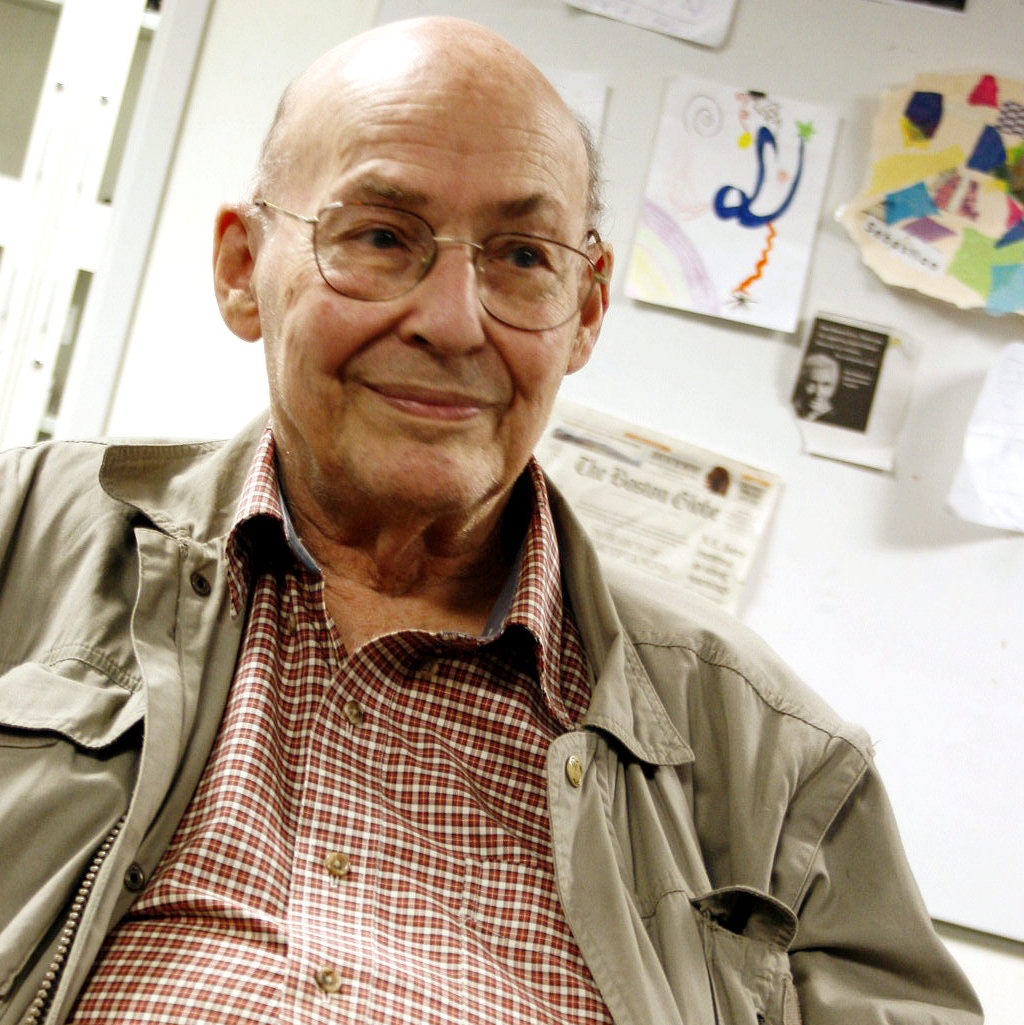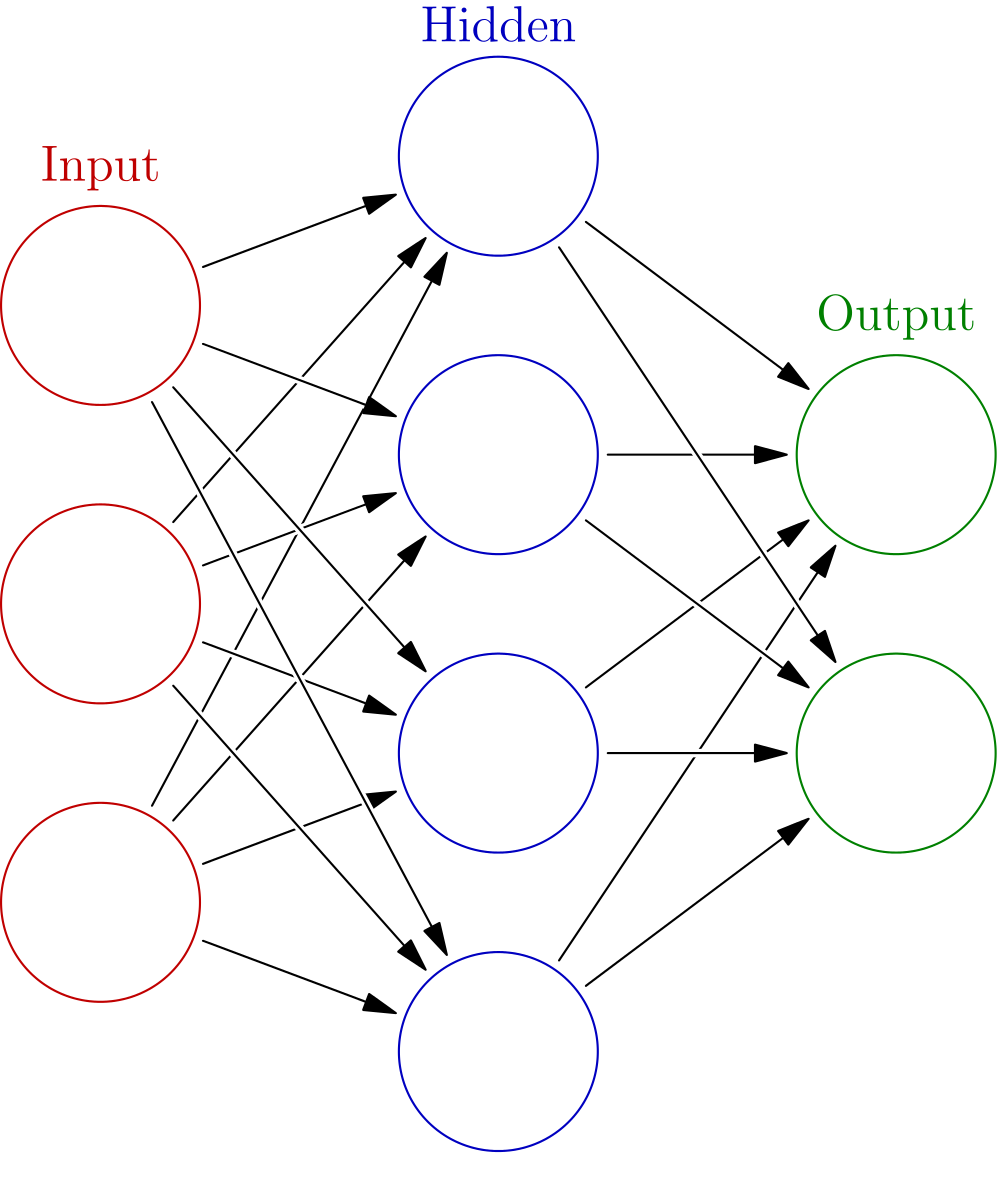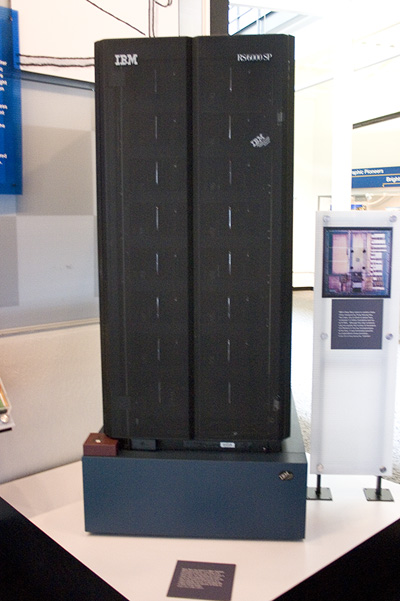CIS 115
Artificial Intelligence
What is Artificial Intelligence?
What is Artificial Intelligence?
"It is the science and engineering of making intelligent machines, especially intelligent computer programs. It is related to the similar task of using computers to understand human intelligence, but AI does not have to confine itself to methods that are biologically observable."
- John McCarthy, 2007
Source: Stanford
Yes, but what is intelligence?
"Intelligence is the computational part of the ability to achieve goals in the world. Varying kinds and degrees of intelligence occur in people, many animals and some machines." - John McCarthy, 2007
Source: Stanford
Isn't there a solid definition of intelligence that doesn't depend on relating it to human intelligence?
"Not yet. The problem is that we cannot yet characterize in general what kinds of computational procedures we want to call intelligent. We understand some of the mechanisms of intelligence and not others." - John McCarthy, 2007
Source: Stanford
Alan Turing (1912 - 1954)
"I propose to consider the question, 'Can machines think?'" - Turing, 1950
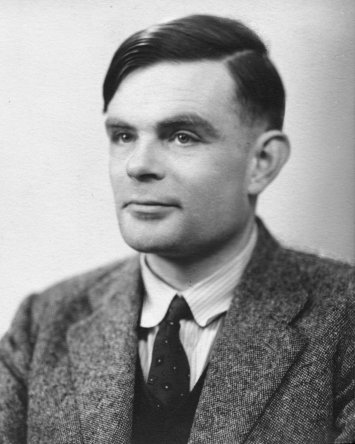
Image Source: Wikipedia
Strong AI vs. Weak AI
- Strong AI - matches human intelligence and is capable of performing any task
- Weak AI - only designed to perform a specific subset of intelligent actions
Intelligent Agents
- Agent: Definition
- Any entity that perceives its environment through sensors and acts upon that environment through effectors
- Examples (class discussion): human, robotic, software agents
Agents
- Perception: Signal from environment, may exceed sensory capacity
- Sensors: Acquires percepts, possible limitations
- Action: Attempts to affect environment, usually exceeds effector capacity
- Effectors: Transmits actions, possible limitations
How Agents Should Act
A rational agent:
- Does the right thing
- Given what it believes
- From what is perceives
Maximum Success Measure (Utility)
- What is the right thing
- How and When to evaluate success
Measuring Performance
Criteria to determine Success
- Depends on Agents and Environments
- Can be measured subjectively (need an accurate answer) or objectively (outside observation)
When to Evaluate Success
- Depends on objective (short-term?)
- Episodic? Milestones? Reinforcements? (games)
Measuring Performance Example
Web Crawling Agent
- Precision: did you get only the pages you wanted?
- Recall: did you get all pages you wanted?
- Ratio: relevant hits vs. pages explored
- Caveat: "you get what you ask for"
Methods for Developing AI
- Knowledge Representation
- Search
- Expert Systems & Knowledge Bases
- Planning: classical, universal
- Probabilistic reasoning
- Machine learning: neural networks, evolutionary computing
- Applied AI: agents focus
- Special topics (NLP focus)
PEAS Framework
Performance Measure
- Specified by outside observer or evaluator
- Applied (consistently) to (one or more) IAs in given environment
Environment
- Reachable Status
- "Things that can happen"
- "Where the agent can go"
- To be distinguished from: observable states
PEAS Framework
Actuators
- What can be performed
- Limited by physical factors and self-knowledge
Sensors
- What can be observed
- Subject to error: measurement, sampling, postprocessing
Neural Network Activity
- Each person has 10 images
- Vote if that image is a CAT or DOG
- If you are correct, you get more votes next time
- If you are incorrect, you get less votes next time
- 100 photos of tanks behind trees
- 100 photos of just trees
- It worked for all pictures that were used to train the system
- It didn't work for another set of pictures
Why?
Artificial Intelligence Today
Other Uses
- Microsoft Kinect
- Apple Siri
- Wolfram Alpha
Almost Everywhere!
What we talked about
- Alan Turing & the Turing Test
- John Searle & the Chinese Room
- Newell & Simon's Logic Theorist
- Dartmouth Research Project
- Subtopics & Tools in AI
- Marvin Minsky & Neural Networks
- AI Today (breifly)
What we didn't talk about
- Philosophical Implications
- Ethical Implications
- Solvability - Is there something a human can do that can't be done by an AI?
- The Singularity
- What is "consciousness"?
Assignments
- Read and be prepared to discuss:
- 9ALG 6: Pattern Recognition
- Blog 6 - Due 4/18 10:00 PM
- Wiki Draft - Due 4/15 10:00 PM
Blog 6: Computing Science & Mathematics
As we embark on reading the last textbook, it should be very obvious by now that mathematics is a core aspect of Computing Science. In fact, most Computing Science departments and disciplines have a direct foundation in the study of mathematics. Here’s a good quote summing it up from Harold Abelson: “Mathematics provides a framework for dealing precisely with notions of "what is". Computation provides a framework for dealing precisely with notions of "how to".” For this article, write about how Computing Science and Mathematics are related. (Food for thought - Read up on Theoretical Computer Science and Applied Mathematics). Things you can talk about:
- What mathematical concepts are you most interested in? How do they relate to Computing Science?
- Which algorithms do you think are most closely tied to mathematics? Which ones only make sense when applied to a computer?
- What areas of theoretical computer science do you find most interesting? Why are those interesting to you?
- What have you read in the textbooks so far that relates closely to mathematics?
- Who are some major historical figures that are important to both mathematics and Computing Science? Why do you think they are important in both fields?
